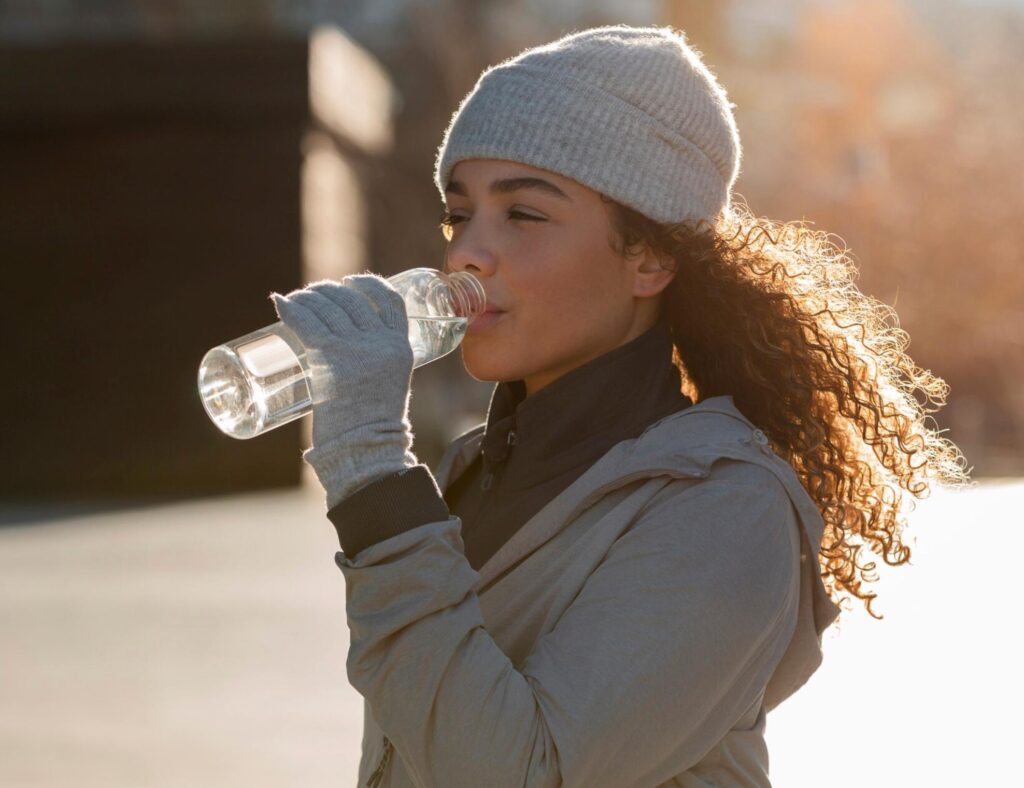When the weather cools down, it’s easy to think hydration is less important. After all, you’re not sweating buckets under the summer sun or feeling the same level of thirst. However, staying hydrated in winter is just as crucial as in summer—and often overlooked. In fact, cooler weather can sometimes mask the body’s cues for water, meaning you may drink less without even realising it. That’s why finding ways to enjoy water during the cold is essential for maintaining health and wellbeing year-round.
Why Hydration Matters in Winter
Hydration isn’t only about quenching thirst—it underpins nearly every function in the body. During the colder months, indoor heating, layered clothing, and lower humidity can all contribute to dehydration. Your body is still losing fluids through breathing, perspiration, and even the dry winter air, which draws moisture from your skin and respiratory system. Without enough water, you may experience fatigue, dry skin, headaches, or difficulty concentrating.

Subtle Signs of Winter Dehydration
Unlike summer, where thirst and sweat make dehydration more obvious, the symptoms in winter can be less noticeable. Common signs include:
- Dry or itchy skin
- Chapped lips
- Increased fatigue
- Dizziness or light-headedness
- Dark-coloured urine
Benefits of Staying Hydrated in Colder Weather
Boosted immunity – Adequate hydration supports the body’s natural defence mechanisms, helping fight off seasonal colds and flu.
Improved skin health – Water helps prevent the dryness and irritation often caused by cold winds and indoor heating.
Better energy levels – Proper hydration maintains circulation and supports oxygen flow, keeping you energised.
Joint and muscle support – Staying hydrated lubricates joints, which can help reduce stiffness often felt in cooler weather.
Mental clarity – Even mild dehydration can impair focus and mood, making water intake essential during long winter workdays.
Simple Tips to Stay Hydrated in Winter
- Warm it up: Herbal teas or warm water with a slice of lemon can make hydration more inviting in cold weather.
- Eat hydrating foods: Soups, stews, and fruits such as oranges and apples can contribute to daily fluid intake.
- Keep a routine: Set reminders to drink water throughout the day, even if you don’t feel thirsty.
- Use a reusable bottle: Keeping water within reach encourages regular sipping.
- Flavour naturally: Add herbs, berries, or citrus slices to your water for variety and a subtle flavour boost.
Final Thoughts
Staying hydrated in winter is often underestimated, but it is vital for supporting overall health, energy, and resilience through the colder months. By making a conscious effort to drink more water and adopt simple hydration habits, you can keep your body functioning at its best—no matter the season.



































